News
25 May 2020
Challenges and opportunities for the Kuyperwijk
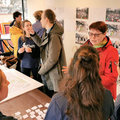
Students from Delft University of Technology, Erasmus University and Leiden University went into the Delft Kuyperwijk in March 2020 to research challenges and opportunities for the neighbourhood. With interviews, observations, and data analysis, they found that the district is very diverse in terms of design and population characteristics. The students then developed strategies for the challenges and development opportunities in the neighbourhood.
20 May 2020
Representing, embodying and enabling democracy

How have architecture and urban planning played a role in democracy over the course of the 20th century? PhD researchers Íñigo Cornago Bonal and Burcu Köken use the extensive archives of Het Nieuwe Instituut to answer this question. Their research is part of the ‘Architecture and Democracy’ programme, an initiative between the Jaap Bakema Study Centre, the faculty of Architecture and the Built Environment, and Het Nieuwe Instituut.
13 May 2020
A good start to a possibly difficult year?
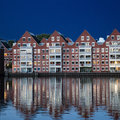
The Dutch market for owner-occupied houses and mortgages is getting off to a good start in 2020. At the same time, it is clear that the owner-occupied market will be affected by the corona crisis during the year 2020. However, it remains to be seen how big the effect will be.
07 May 2020
Solving urban issues with education
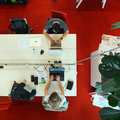
Growth, innovation, and liveability in Dutch cities is the goal of Agenda Stad. Three new research projects of the Faculty of Architecture and the Built Environment are using education to accelerate the development of innovative solutions to these social issues. As part of the 'City Deals Knowledge Making' programme, the projects are working on heritage workshops, connections between universities and municipalities, and a management game.
07 May 2020
Respectful redesign is a true craft

To maintain and keep a building in use, interventions are required at certain moments in time. It is usually up to an architect to consider what interventions are to be made. But what purposes do they actually serve? How do actions work out? How satisfactory is the result? The forty Master’s students taking the new MASTERMIND CRASH course, made a game of finding out.
07 May 2020
Acoustic control of your environment
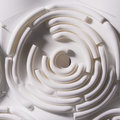
Imagine this: you can control the acoustics of your environment, no matter the size and shape of the space around you, your access to electricity, and the type of sound you’d like to control. That is what the ADAM project prototype offers. With the use of mathematical models and 3D printing, amongst others, ADAM allows the creation of tailor made sound absorbers.
22 April 2020
Regenerating urban rivers with green quays
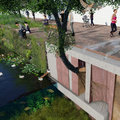
Urban rivers are important elements for urban ecosystems and for the migiation of the effects of climate change. Regenerating urban rivers proves a challenge, especially in dense downtown areas where there is insufficient space to develop natural riverbanks. Research project GreenQuays proposes a set of innovative vertical ecosystems to renature such quays.
09 April 2020
Design for data empowerment

How can citizens be involved in urban data issues? Within the Data Empowerment Design Studio, researchers, local residents, designers, and neighbourhood initiatives discuss and develop new ideas.
09 April 2020
Online ‘Space for the brain’
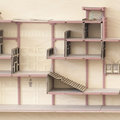
With her graduation project ‘Space for the brain’, Lauren Broshuis is the first student to graduate online from the MSc Architecture, Urbanism and Building Sciences. Her project advocates the inclusion of varying environmental stimuli in the built environment to account for individual preferences, guaranteeing grounds for focus and creativity for every brain.
01 April 2020
The construction sector through the eyes of an anthropologist
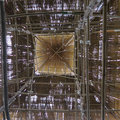
Alfons van Marrewijk has been appointed as professor of Construction Cultures at the faculty of Architecture and the Built Environment at TU Delft. “The construction industry is packed with rituals, which people are hardly even aware of. By paying attention to the how and why of these rituals, you create space for change.”